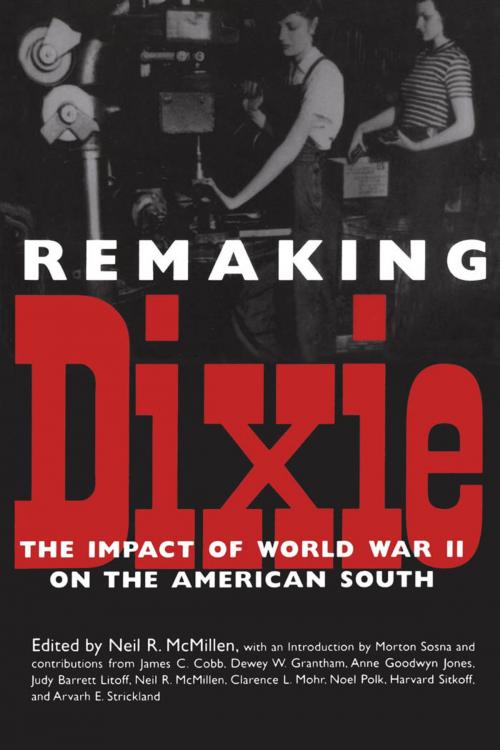Remaking Dixie
The Impact of World War II on the American South
Nonfiction, History, Americas, United States, 20th Century, Military, World War II| Author: | ISBN: | 9781604739312 | |
| Publisher: | University Press of Mississippi | Publication: | July 23, 2007 |
| Imprint: | University Press of Mississippi | Language: | English |
| Author: | |
| ISBN: | 9781604739312 |
| Publisher: | University Press of Mississippi |
| Publication: | July 23, 2007 |
| Imprint: | University Press of Mississippi |
| Language: | English |
What elements caused such striking change to the face of Dixie?
In this volume, nine widely known specialists in the history and literature of the American South search for the origins of this sweeping regional transformation in the period of the Second World War. These original essays address a cluster of related problems of enduring fascination for all those who wish to understand the ever-changing, ever-abiding South.
Offering new answers to important questions, they address the Second World War as a major watershed in southern history. Did it drive old Dixie down? Did it set in motion forces that ultimately shaped a Newer South? Did it further Americanize the South by eroding traditional patterns of though and deed that once were fiercely defended by white southerners as "our way of life"? Was the postwar South less different, less peculiar and distinctive?
What elements caused such striking change to the face of Dixie?
In this volume, nine widely known specialists in the history and literature of the American South search for the origins of this sweeping regional transformation in the period of the Second World War. These original essays address a cluster of related problems of enduring fascination for all those who wish to understand the ever-changing, ever-abiding South.
Offering new answers to important questions, they address the Second World War as a major watershed in southern history. Did it drive old Dixie down? Did it set in motion forces that ultimately shaped a Newer South? Did it further Americanize the South by eroding traditional patterns of though and deed that once were fiercely defended by white southerners as "our way of life"? Was the postwar South less different, less peculiar and distinctive?















